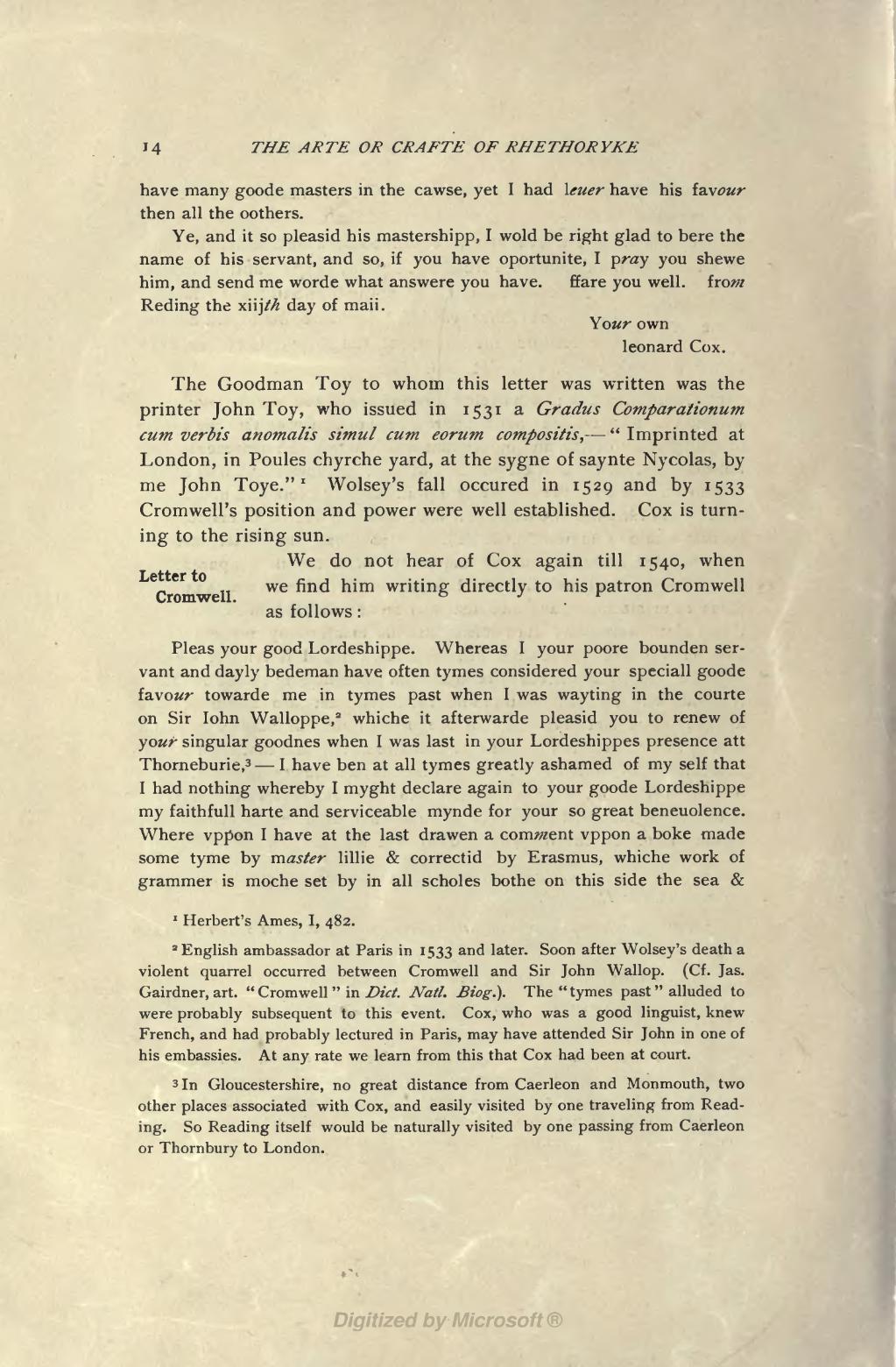have many goode masters in the cawse, yet I had leuer have his favour then all the oothers.
Ye, and it so pleasid his mastershipp, I wold be right glad to here the name of his servant, and so, if you have oportunite, I pray you shewe him, and send me worde what answere you have. ffare you well, from Reding the xiijth day of maii.
Your own
leonard Cox.
The Goodman Toy to whom this letter was written was the printer John Toy, who issued in 1531 a Gradus Comparationum cum verbis anomalis simul cum eorum compositis, — "Imprinted at London, in Poules chyrche yard, at the sygne of saynte Nycolas, by me John Toye."[1] Wolsey's fall occured in 1529 and by 1533 Cromwell's position and power were well established. Cox is turning to the rising sun.
We do not hear of Cox again till 1540, when we find him writing directly to his patron Cromwell as follows:
Pleas your good Lordeshippe. Whereas I your poore bounden servant and dayly bedeman have often tymes considered your speciall goode favour towarde me in tymes past when I was wayting in the courte on Sir Iohn Walloppe,[2] whiche it afterwarde pleasid you to renew of your singular goodnes when I was last in your Lordeshippes presence att Thorneburie,[3] — I have ben at all tymes greatly ashamed of my self that I had nothing whereby I myght declare again to your goode Lordeshippe my faithfull harte and serviceable mynde for your so great beneuolence. Where vppon I have at the last drawen a comment vppon a boke made some tyme by master lillie & correctid by Erasmus, whiche work of grammer is moche set by in all scholes bothe on this side the sea &
- ↑ Herbert's Ames, I, 482.
- ↑ English ambassador at Paris in 1533 and later. Soon after Wolsey's death a violent quarrel occurred between Cromwell and Sir John Wallop. (Cf. Jas. Gairdner, art. "Cromwell" in Dict. Natl. Biog.) The "tymes past" alluded to were probably subsequent to this event. Cox, who was a good linguist, knew French, and had probably lectured in Paris, may have attended Sir John in one of his embassies. At any rate we learn from this that Cox had been at court.
- ↑ In Gloucestershire, no great distance from Caerleon and Monmouth, two other places associated with Cox, and easily visited by one traveling from Reading. So Reading itself would be naturally visited by one passing from Caerleon or Thornbury to London.
